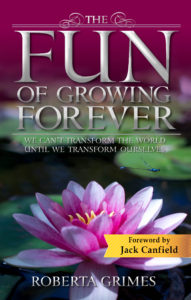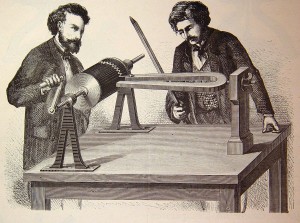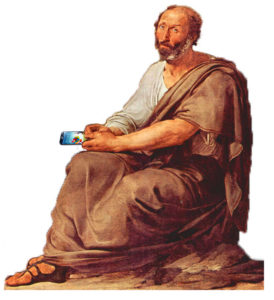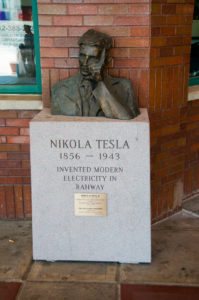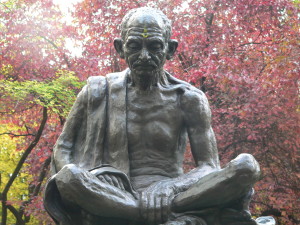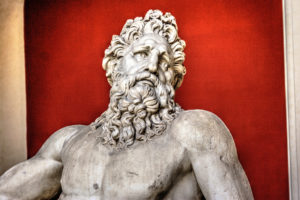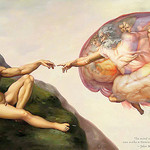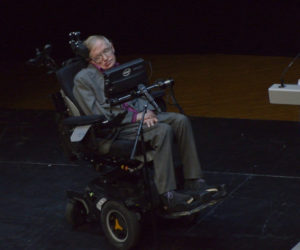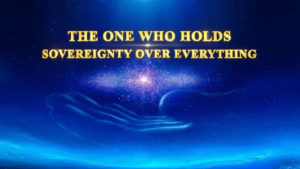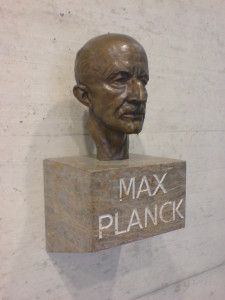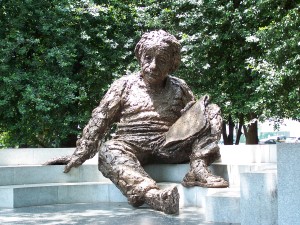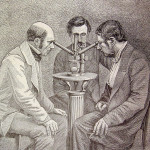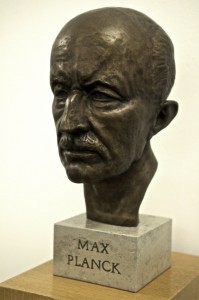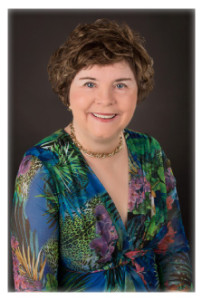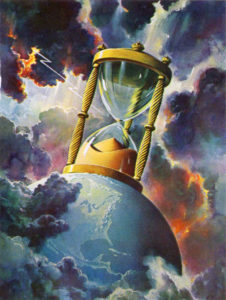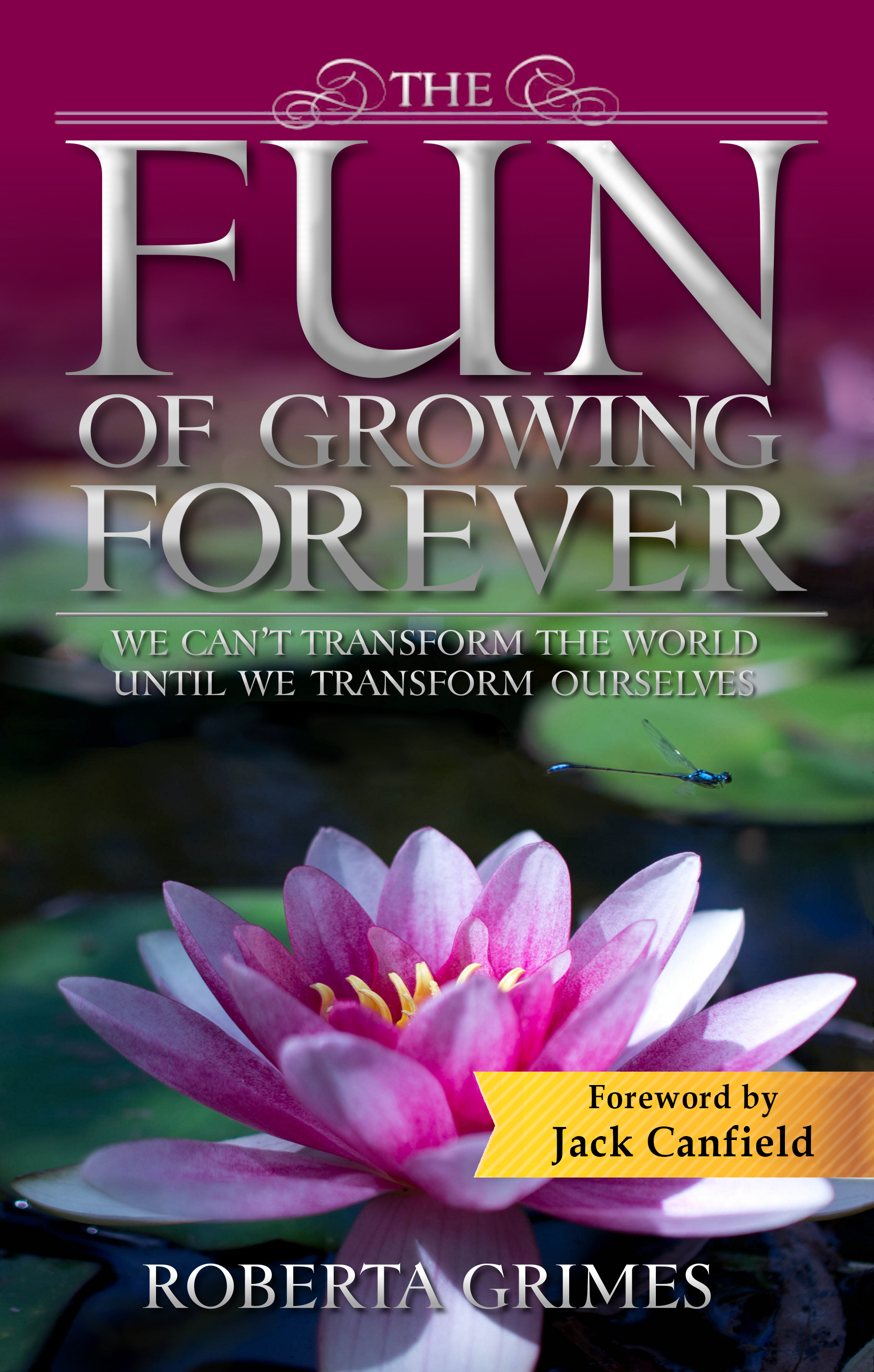 A week ago came one of those moments when you really help me grow. The previous week I had published a blog post on scientific cluelessness that had been months in the making, was rich with linked articles, and was a lot of fun to write; and it had attracted precisely one commenter and not a single email. Then during that next week it occurred to me that it might be good to write about the ego, and the result has been so many comments and emails that I have lost count! So I finally do get it. Growing spiritually has become foremost in your mind! Most wonderful for me has been the fact that your words have helped me realize some things that never would have occurred to me without your help. So thank you for once again thinking deeply and taking the time to share your thoughts. We fight for humanity’s future together!
A week ago came one of those moments when you really help me grow. The previous week I had published a blog post on scientific cluelessness that had been months in the making, was rich with linked articles, and was a lot of fun to write; and it had attracted precisely one commenter and not a single email. Then during that next week it occurred to me that it might be good to write about the ego, and the result has been so many comments and emails that I have lost count! So I finally do get it. Growing spiritually has become foremost in your mind! Most wonderful for me has been the fact that your words have helped me realize some things that never would have occurred to me without your help. So thank you for once again thinking deeply and taking the time to share your thoughts. We fight for humanity’s future together!
I am coming to see now, thanks to you, that we have a big new task before us. There is a growing interest in the afterlife, and more and more people are coming to realize that we enter these earth-lives so we can grow spiritually. All of this does feel like progress! But our pressing task now is to figure out how we can help everyone on earth to achieve the spiritual growth that apparently is the whole reason why this universe exists. All our deeply fear-based religions are anathema to spiritual growth, and there is no other obvious source of information about how we can raise our spiritual vibrations and make a big success of this lifetime!
Except, of course, for A Course in Miracles. ACIM is what amounts to a Ph.D.-level exposition of the teachings of Jesus, and the Lord Himself is its likely head author. I recommend the Course without reservation, and I find it to be an especially useful way to draw out and smack down your ego. I said this last week, and a perceptive commenter responded with a quote from Marianne Williamson. Ms. Williamson is one of the foremost experts on A Course in Miracles worldwide. Our commenter remarked that this is what Ms. Williamson has to say about what happens when you invite the Lord into your life:
“When you ask God into your life, you think God is going to come into your  psychic house, look around, and see that you just need a new floor or better furniture, and that everything needs just a little cleaning — and so you go along for the first six months thinking how nice life is now that God is there. Then you look out the window one day and you see that there’s a wrecking ball outside. It turns out that God actually thinks your whole foundation is shot and you’re going to have to start over from scratch. Jesus and his wrecking ball. Suddenly the image of Jesus standing at the door and knocking is transformed. ‘Hey, anybody home? I want to knock this sucker down so we can totally rebuild it. You ready for that?’ It’s what Jesus and his wrecking ball is set to do. Knock it all down to its very foundation. Rip out the foundation if necessary. Jesus wants to make room for something new. Jesus wants to knock down every part of you that doesn’t reflect God’s realm.”
psychic house, look around, and see that you just need a new floor or better furniture, and that everything needs just a little cleaning — and so you go along for the first six months thinking how nice life is now that God is there. Then you look out the window one day and you see that there’s a wrecking ball outside. It turns out that God actually thinks your whole foundation is shot and you’re going to have to start over from scratch. Jesus and his wrecking ball. Suddenly the image of Jesus standing at the door and knocking is transformed. ‘Hey, anybody home? I want to knock this sucker down so we can totally rebuild it. You ready for that?’ It’s what Jesus and his wrecking ball is set to do. Knock it all down to its very foundation. Rip out the foundation if necessary. Jesus wants to make room for something new. Jesus wants to knock down every part of you that doesn’t reflect God’s realm.”
I was shocked and horrified! Here is a shortened version of my answer:
That is not the Jesus of the Gospels! He would say the only problem with your house is there are mice running around in it, squirrels in the attic, and even squatters that you allowed to move in because you were too busy to keep them out even though they are a nuisance and you hate them. So you follow Jesus’s suggestions about how to remove whatever is not a part of your eternal self from the house, so soon there is nothing more in it of earthly imperfections but it is entirely of God. And how beautiful it is! It doesn’t even need much paint, once you and He have scrubbed the walls clean. And with all the little creatures gone and the squatters decamped, the Lord helps you even to do the repainting.
 The more time you spend at home with Jesus, the more perfect your whole life starts to feel. You become so happy in your life with the Lord that one day you say, “You know, Jesus, maybe we should put a wing on the house? Then we can invite those homeless people back and have them bring their friends because I have just realized they are all my cousins! And I find that I do love each of them, now that I have reclaimed my eternal home with You and come to realize that it is built on and made of and filled with love.”
The more time you spend at home with Jesus, the more perfect your whole life starts to feel. You become so happy in your life with the Lord that one day you say, “You know, Jesus, maybe we should put a wing on the house? Then we can invite those homeless people back and have them bring their friends because I have just realized they are all my cousins! And I find that I do love each of them, now that I have reclaimed my eternal home with You and come to realize that it is built on and made of and filled with love.”
Eventually you and Jesus might add that wing, or you might even build an entire city around your house so you can better love and care for the world because it turns out they are all your cousins! But this love that fills you now is nothing new: it always was your own true nature. Your rediscovery of it is the beautiful fruit of your having been encouraged by the Lord of the Gospels to reclaim who you are eternally! Your foundation IS God. All you need to do is remember that fact and get rid of every earthly distraction. The Gospel teachings are meant to help us return to our foundation in God so we can reclaim our eternal nature, not to make us start all over from scratch and become someone else altogether!
I remained horrified by Marianne Williamson’s words until the following morning, when I realized she is right. If you are a Christian, you have built  your spiritual house out of fear-based dogmas that make you feel terrible about yourself. “I am so sinful that God can’t forgive me so Jesus has to die or I am going to hell” is the core of what Christianity teaches us to believe about ourselves. “That Christmas Baby lying in the manger is going to have to suffer and die because I am so unworthy of God’s forgiveness. And Jesus will die for me! Of course He will, because unlike me, Jesus is beautiful and perfect. So now I know that I am “saved,” but that doesn’t make me feel even one whit better about my unworthy self. I am sinful. My core nature is evil. Because Adam ate the apple, this is who I am.” So if I am a practicing Christian, I am going to need that wrecking ball! My entire spiritual foundation is rotten. No choice but to trash it all and start over.
your spiritual house out of fear-based dogmas that make you feel terrible about yourself. “I am so sinful that God can’t forgive me so Jesus has to die or I am going to hell” is the core of what Christianity teaches us to believe about ourselves. “That Christmas Baby lying in the manger is going to have to suffer and die because I am so unworthy of God’s forgiveness. And Jesus will die for me! Of course He will, because unlike me, Jesus is beautiful and perfect. So now I know that I am “saved,” but that doesn’t make me feel even one whit better about my unworthy self. I am sinful. My core nature is evil. Because Adam ate the apple, this is who I am.” So if I am a practicing Christian, I am going to need that wrecking ball! My entire spiritual foundation is rotten. No choice but to trash it all and start over.
A Course in Miracles has to repair the damage done to us by Christian teachings before it can begin to help us grow spiritually. As I look at the Course freshly, I see that a lot of it is aimed at getting rid of those false Christian fears that keep us from realizing that our spiritual foundation is nothing but God. Our genuine nature is perfect love. If it were not for Christianity, our spiritual growth would be so easy: we could simply reclaim what we already are!
So now I am coming to think that the only way we ever can help the Lord to build the love-based movement He came to earth to start will be if we can find a way to erase Christianity from our personal histories. We will need to go back two thousand years and sit down together at the feet of the Lord and listen to Him. Listen only to Him! We are dressed in homespun, you and I. Our feet are bare, the sun is hot on our heads, and the breeze smells sweet and green. We are looking up at the face of the Teacher, marveling with all the people around us at the amazing new ways that He talks about God.
 We know God as a stern but loving Parent. God insists that we obey His commandments and live and eat and dress in ways that keep our minds focused on Him, but God deeply loves us! God has chosen us from all the world to be His own people, so we joyously sing to Him songs of praise:
We know God as a stern but loving Parent. God insists that we obey His commandments and live and eat and dress in ways that keep our minds focused on Him, but God deeply loves us! God has chosen us from all the world to be His own people, so we joyously sing to Him songs of praise:
Give thanks to the Lord, for He is good,
For His lovingkindness is everlasting.
Give thanks to the God of gods,
For His lovingkindness is everlasting.
Give thanks to the Lord of lords,
For His lovingkindness is everlasting.
To Him who alone does great wonders,
For His lovingkindness is everlasting (Psalm 136:1-4).
You and I as first-century Jews live in the certainty of God’s love and care. We are sinners, we make mistakes, but God understands. We suffer travails in the world, but God will send a Messiah in the line of David who will be our King in the better world to come. The Teacher speaking to us now might even be that Messiah! But we are confounded by the things He does, and especially confounded by the things He says:
We are sinners, we make mistakes, but God understands. We suffer travails in the world, but God will send a Messiah in the line of David who will be our King in the better world to come. The Teacher speaking to us now might even be that Messiah! But we are confounded by the things He does, and especially confounded by the things He says:
“… Blessed are the peacemakers, for they shall be called sons of God.
“Blessed are those who have been persecuted for the sake of righteousness, for theirs is the kingdom of heaven.
“Blessed are you when people insult you and persecute you, and falsely say all kinds of evil against you because of Me. Rejoice and be glad, for your reward in heaven is great; for in the same way they persecuted the prophets who were before you” (MT 5:9-12).
You and I so much want to believe that Jesus is the true Messiah who will bring to God’s chosen people the dawning of a much better world! But as observant first-century Jews, how are we to make sense of His words? Let’s begin to talk about that next week….






